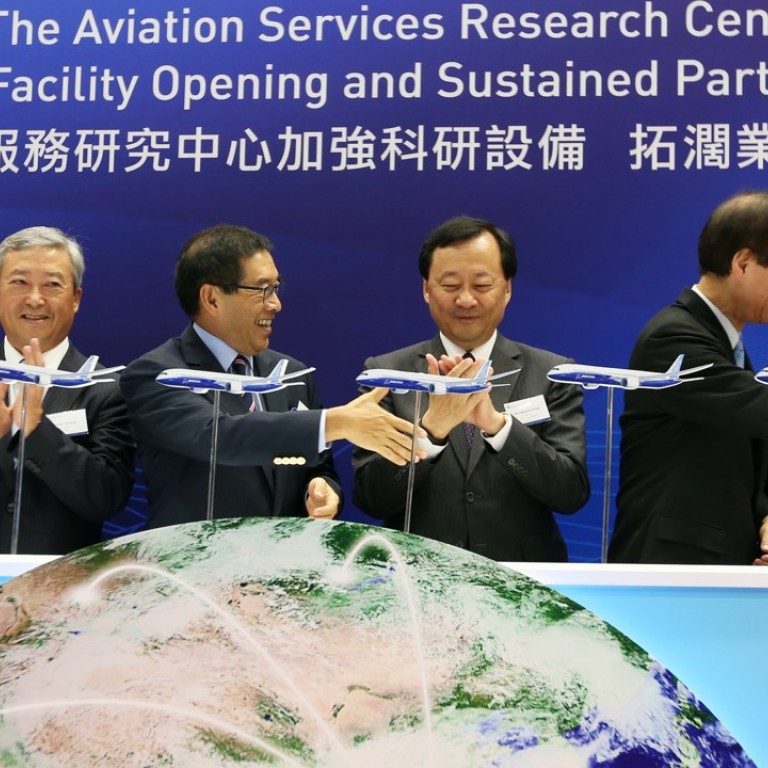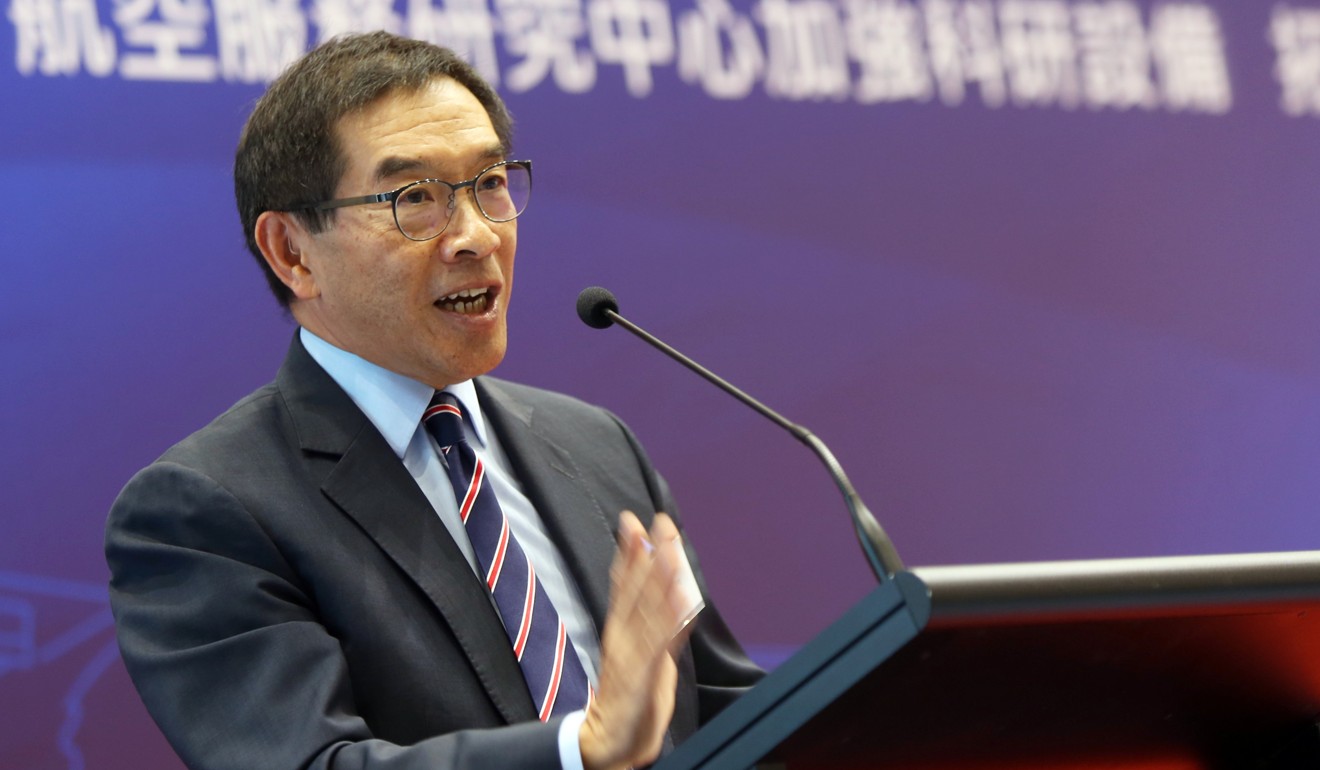
Hong Kong university renews Boeing partnership as its AI research on aviation expands
PolyU centre covers 1,500 square metres with HK$35 million spent on new equipment
A Hong Kong university has redoubled its commitment to Asia’s booming aviation industry with AI research that can help determine whether damaged aeroplane parts need to be replaced or repaired.
Boasting a diagnostic robotic arm among its arsenal, Polytechnic University on Tuesday unveiled a state-of-the-art facility at its aviation services research centre. It also used the occasion to sign an agreement with American aviation giant Boeing to extend by five years a partnership that dates to 2012, when the centre was established.
Will this robot start-up be the next Tencent in the era of artificial intelligence?
School president Timothy Tong Wai-cheung said the signing and new building were meant to bolster the city’s role in the world’s “fastest growing region for aviation”.
The expanded centre now occupies 1,500 square metres on the Hung Hom campus, and university officials claimedthey spent HK$35 million on its new equipment.
Aviation is fast growing industry especially in mainland China
Robotics and artificial intelligence feature prominently at the centre. Future projects relate to aircraft damage inspection and assessment, automated surface preparation and inspection, and automated removal of defective composite airframes.
University officials said the new building was meant to provide research and training for the aviation industry as well as help it develop maintenance, repair and operations (MRO) solutions.
Boeing vice-president for global services Dennis Floyd believed the “young minds” working at the centre would be “at the forefront of aerospace transformation”.

“Aviation is a fast-growing industry, especially in mainland China,” Tong added.
Mainland China is expected to spend HK$19.7 billion per year on MRO by 2027 – a staggering 162 per cent increase from this year, the university said.
Five Hong Kong universities make the grade for first time in QS rankings
Last year, there were 6,830 aircraft in Asia-Pacific. Industry insiders predicted a 156 per cent surge in the region’s fleet size by 2036.

